Clean Water for 1,600 Residents of Sindhupalchok, Nepal
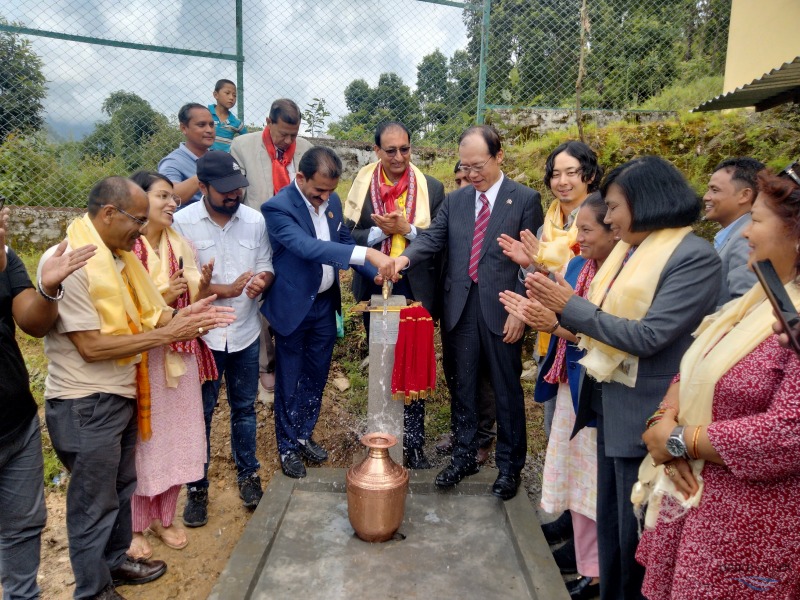
Peace Winds has been working to improve access to clean water and agricultural resources since a major earthquake struck Nepal’s Sindhupalchok District in 2015. This year marked the final year of the project, and Peace Winds held a ceremony to officially hand over the new water wells to local residents.
Prior to the completion of the project, farmers in this mountainous area had to walk to distant springs to secure water for their families and farms each day. Sometimes the springs were dry, making them an unpredictable water source, and many farmers say that the process took away valuable time from their farm work. This year, Peace Winds installed new water supply facilities that are serving more than 270 households in five regions. This means that a total of more than 1,600 individuals now have access to safe drinking water year-round.
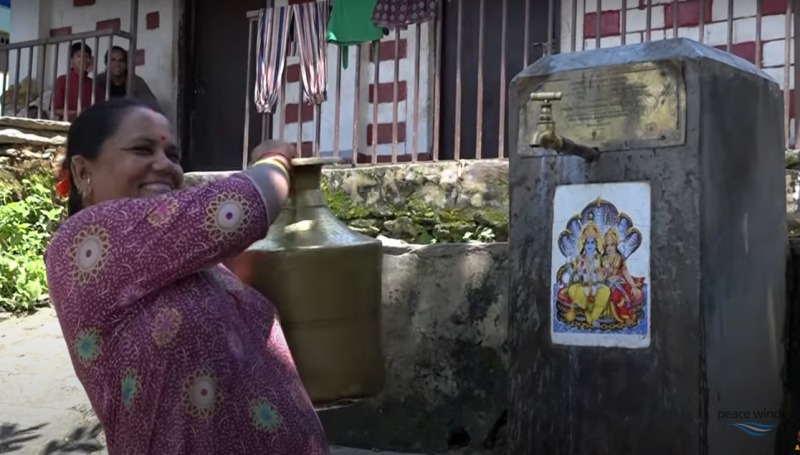
Peace Winds and Sindhupalchok residents were pleased to welcome Ambassador Kikuta, the Japanese Ambassador to Nepal, at the handover ceremony in Balefi. Attendees gathered at the entrance of the village wearing marigold necklaces, a sign of welcome in Nepal.
“Despite carrying out this project under difficult circumstances, including the global COVID-19 pandemic,” said Ambassador Kikuta, “Peace Winds, its partner organization Institution for Suitable Actions for Prosperity, and local residents worked together to achieve a wonderful goal.”
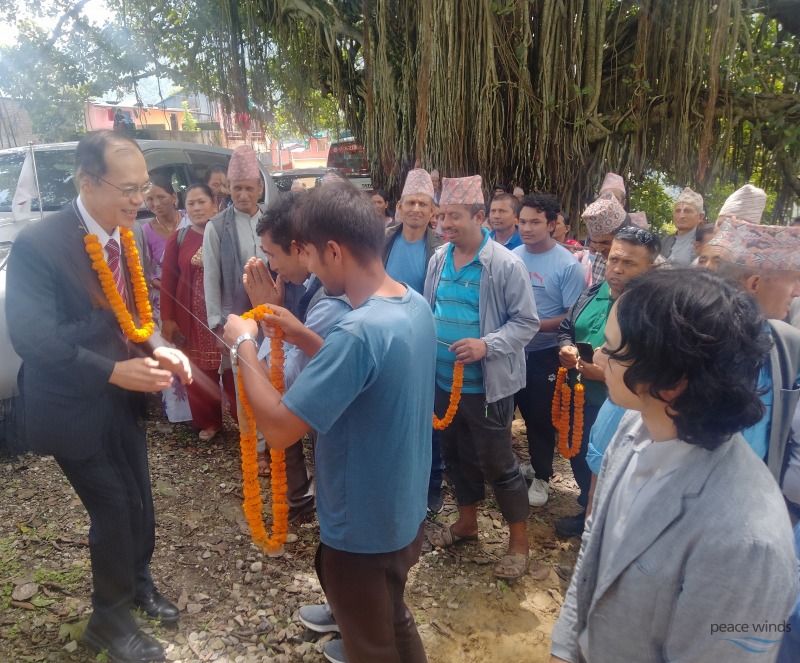
Maya, the local deputy mayor, manages and maintains the water wells and supply lines in collaboration with the local government. She herself has benefited from the project, no longer having to travel more than 30 minutes each way to secure water every day. “Even if the supply lines need repairs after the program ends, we are in a good position to make whatever repairs are needed,” Maya said. “We must protect what this project has given us!”
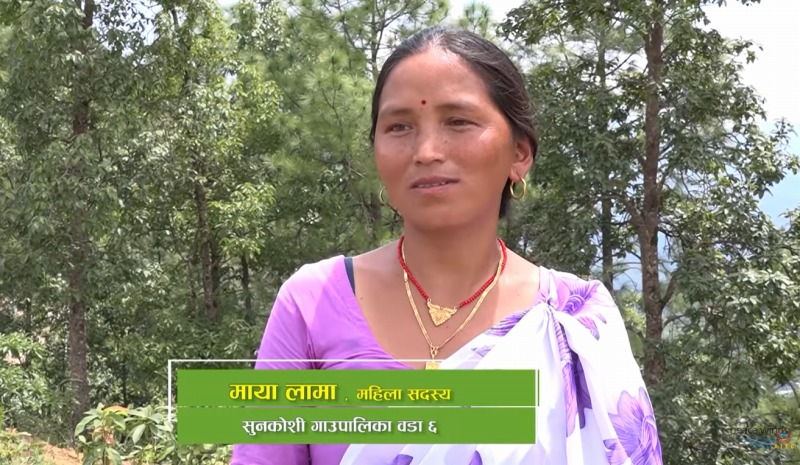
The handover ceremony was covered by Nepal National Television. In an interview, one beneficiary of Peace Winds’ program, Punya, said that the new water supply is saving her time that she used to spend walking to the springs. Now, she has been able to increase her yield of produce including cucumbers and chili peppers.
In addition to providing clean water, Peace Winds provided agricultural training for farmers in Sindhupalchok. Punya learned about growing vegetables in greenhouses through the program, and she said that she has used this knowledge to expand the variety of crops she grows. “Yesterday, I harvested 20 lbs of tomatoes, and they sold for a high price,” she said in her interview.
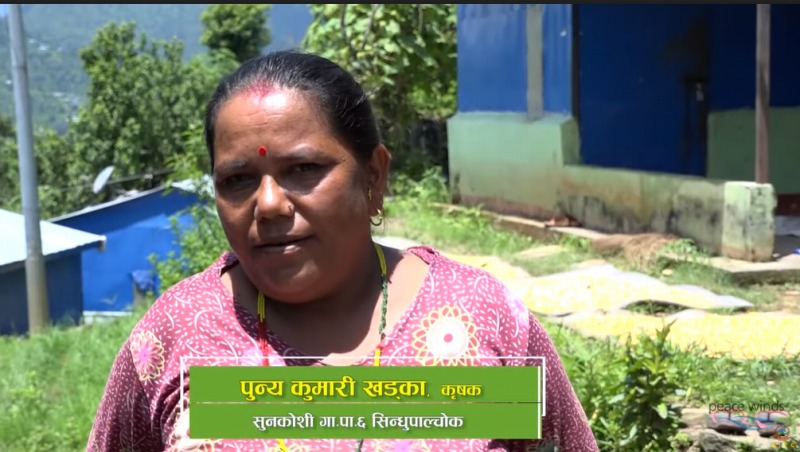
As Peace Winds completed the project in Sindhupalchok, we received many words of gratitude and farewell from local residents. Peace Winds staff members go above and beyond their duties to create meaningful relationships with beneficiaries. “The worst part of this project ending is that we must say goodbye to the staff members,” said one resident. “So instead of saying goodbye, we’ll say, ‘let’s have tea together again soon.’”
This project was made possible by funds from the Japanese Ministry of Foreign Affairs, the Japanese NGO Collaboration Grant Fund, donations from Peace Winds’ supporters, and the cooperation of the Nepali government and local citizens. Peace Winds looks forward to carrying out more aid programs in Nepal in the future to support the livelihoods of those in need. We thank you for your continued support.